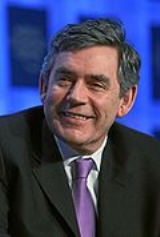
Prime Minister of the United Kingdom
The Prime Minister of the United Kingdom of Great Britain and Northern Ireland is the Head of Her Majesty's Government in the United Kingdom. The Prime Minister and Cabinet are collectively accountable for their policies and actions to the Sovereign, to Parliament, to their political party and ultimately to...
Timeline of Events
|
1721
|
|
||
|
1742
|
|
||
|
1743
|
|
||
|
1782
|
|
||
|
1830
|
|
||
|
1908
|
|
||
|
1924
|
|
||
|
1943
|
|
||
|
1945
|
|
||
|
1947
|
|
||
|
1955
|
|
||
|
1960
|
|
||
|
1974
|
|
||
|
1976
|
|
||
|
1978
|
|
||
|
1979
|
|
||
|
1984
|
|
||
|
1985
|
|
||
|
1987
|
|
||
|
1990
|
|
||
|
1993
|
|
||
|
1994
|
|
||
|
1998
|
|

